Can Dogs Eat Lizards in South Florida, and What About Iguanas?
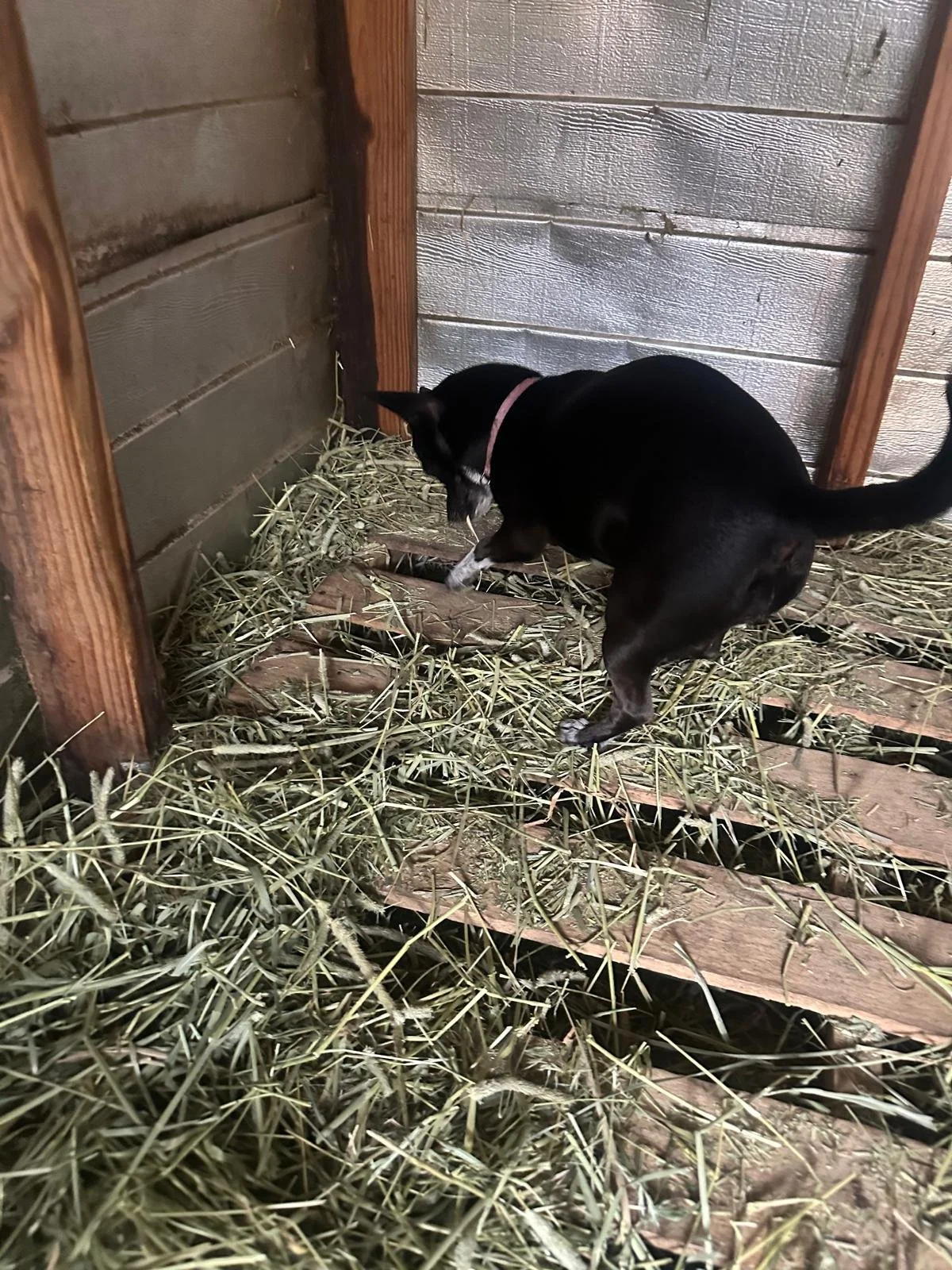
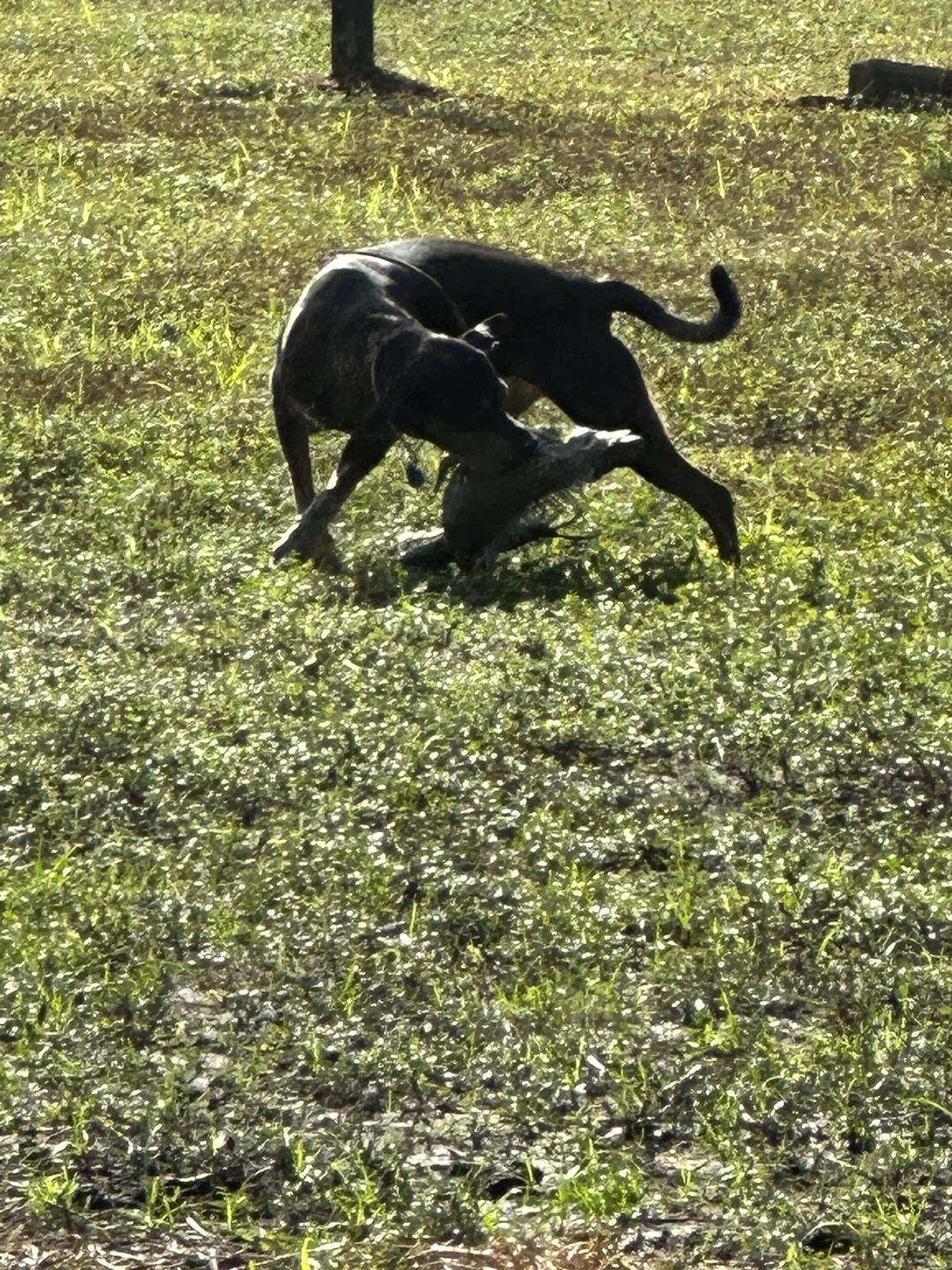
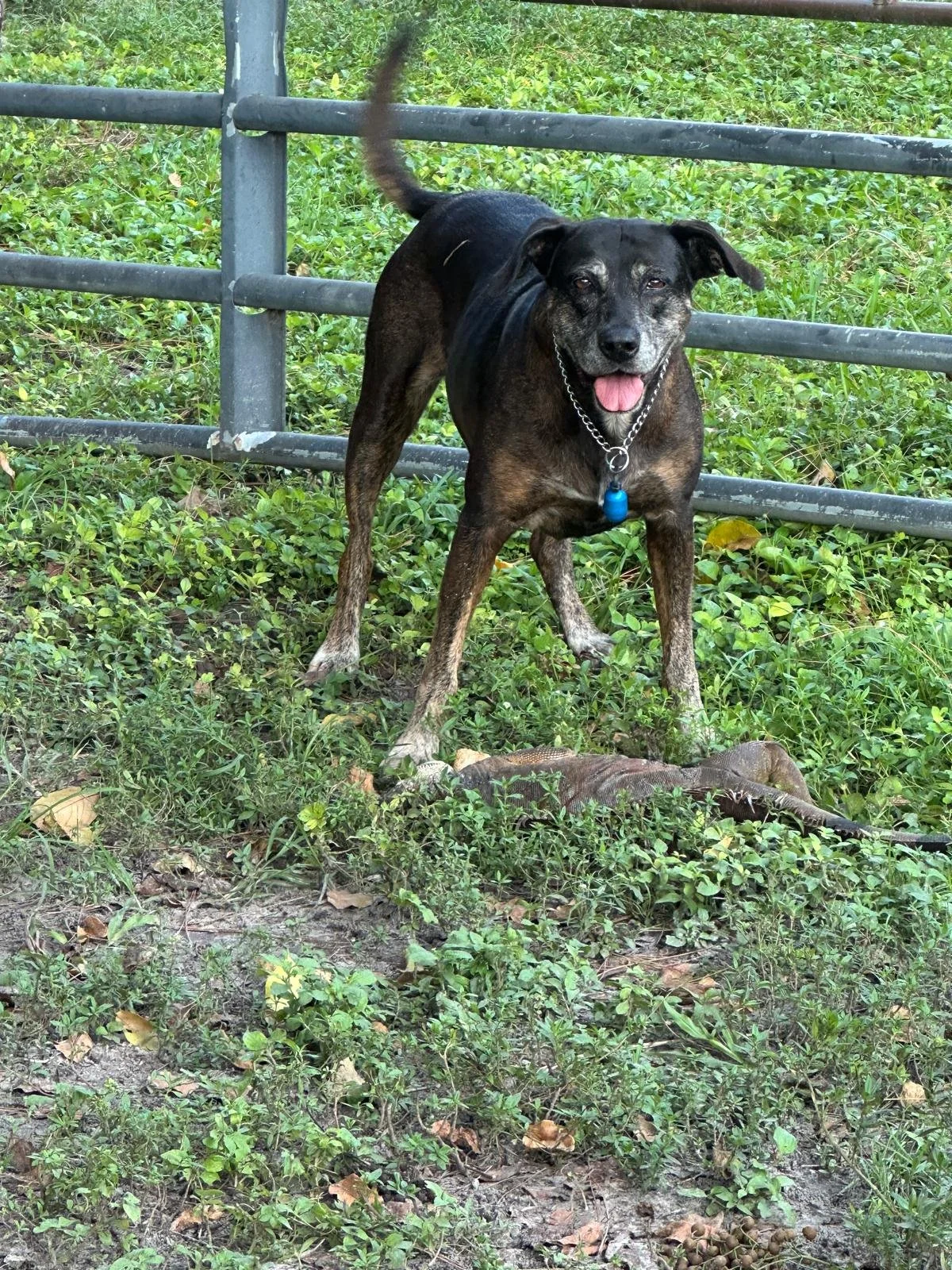
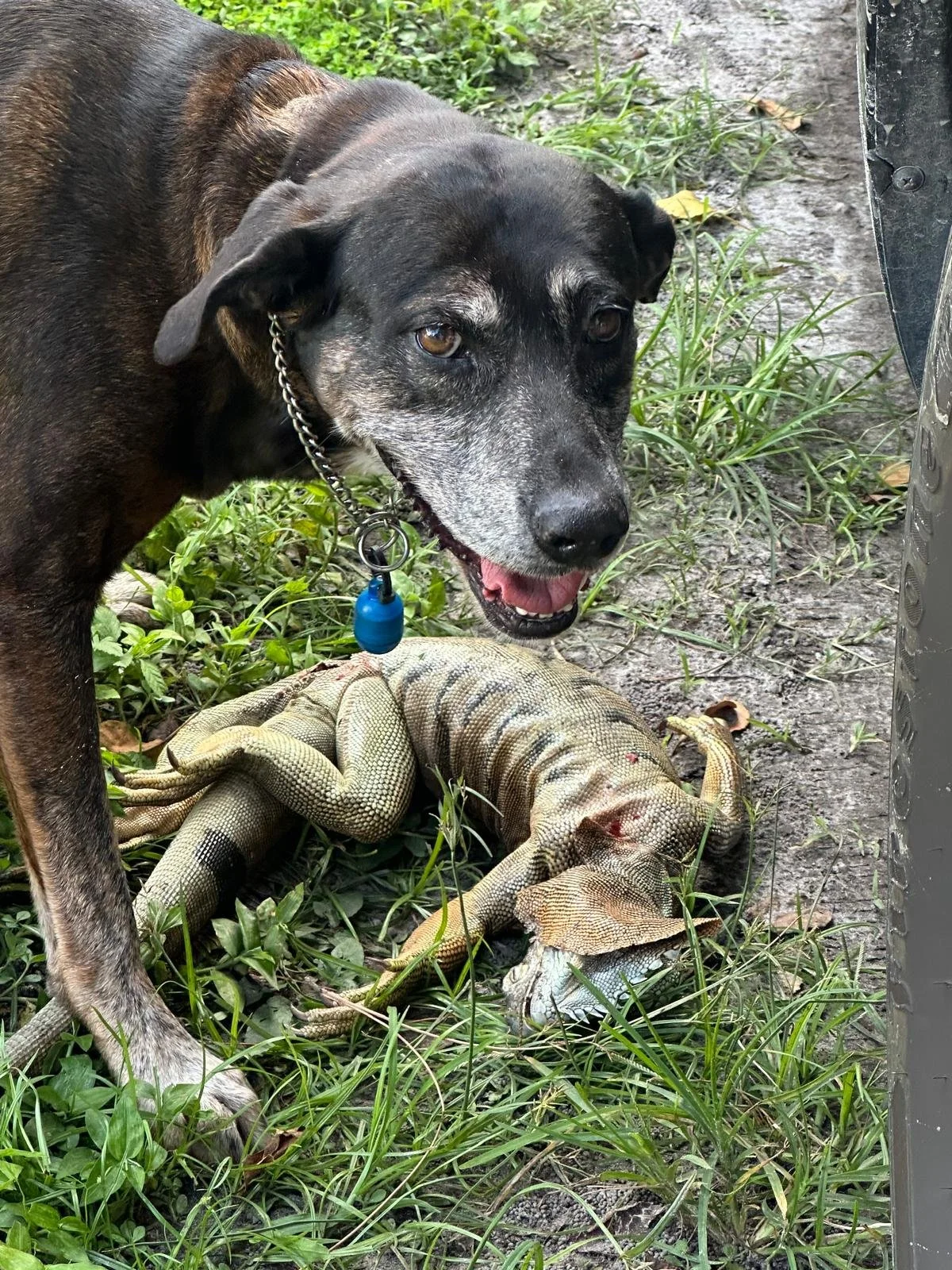
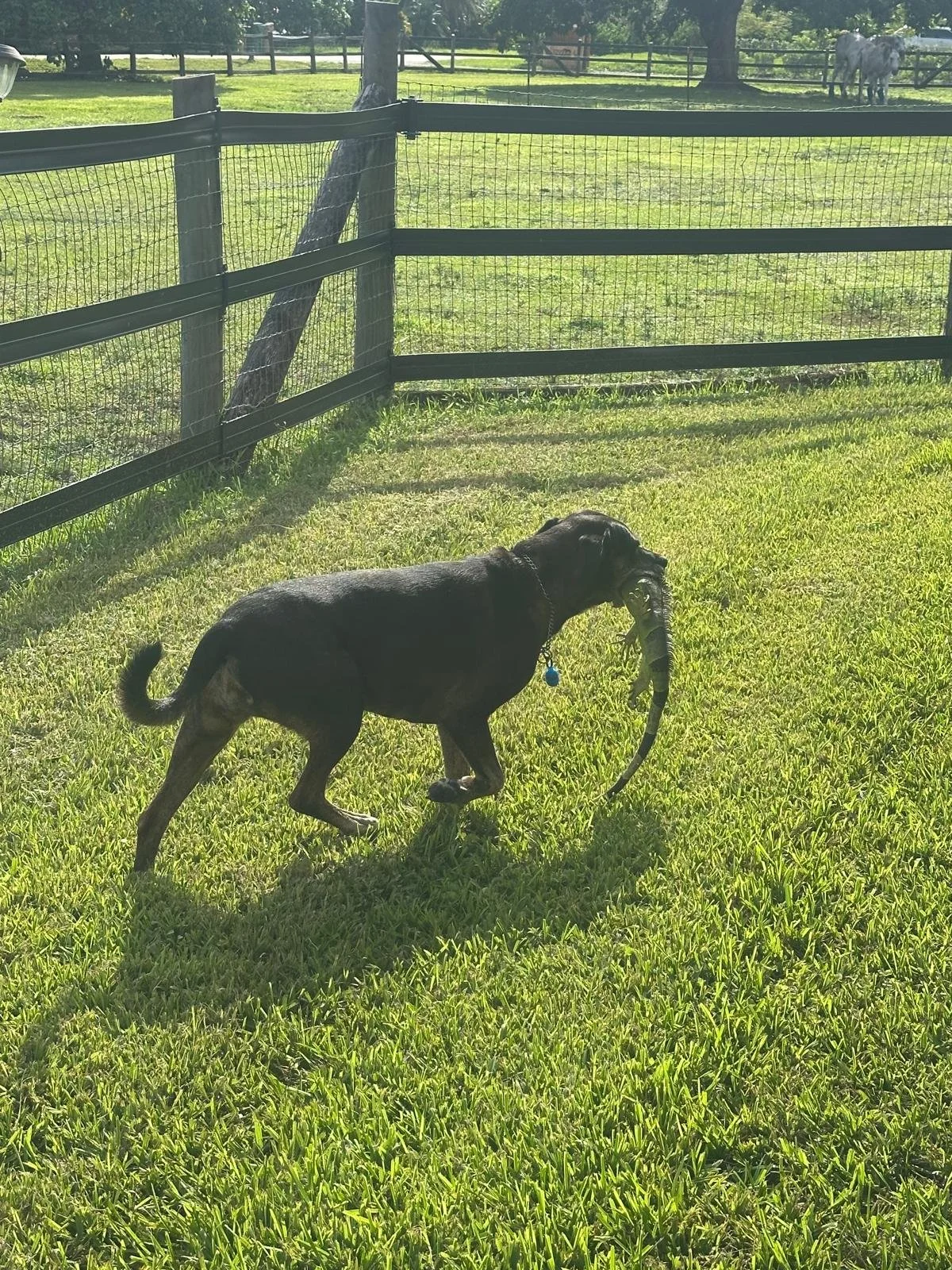
South Florida is lizard central. In Davie, Plantation, Cooper City, and Fort Lauderdale, your dog can spot brown anoles skittering through the mulch, curly-tailed lizards sunning on pavers, and green iguanas thumping out of sea-grape trees. The question that follows feels obvious, can dogs eat those lizards, and if they do, what risks are on the table, from salmonella to blockages to a bad tussle with an iguana? Let’s sort the facts from the yard chatter, then touch a hot topic, do people use dogs to extract iguanas.
What your dog is actually chasing in Broward yards
Most of the tiny “yard lizards” here are Cuban brown anoles, abundant in urban areas across Florida. You will also see Mediterranean house geckos, knight anoles in older neighborhoods with big trees, and the chunky northern curly-tailed lizard around driveways and sidewalks. Florida hosts more nonnative reptiles than anywhere else in the country, which is why your dog sees so much motion at ground level.
Iguanas are a different category, far larger, ground-and-tree dwelling, and listed in Florida as a Prohibited species. State wildlife managers actively promote landowner removal on private property, with humane rules that still apply.
Can dogs eat small lizards, like anoles or geckos?
Short answer, they often try. I would not let them. Small lizards in South Florida are not known for venom, yet they can carry pathogens and parasites. The biggest red flag is salmonella, which reptiles commonly shed. Multiple veterinary and public health sources tie reptiles, including geckos and iguanas, to salmonella transmission risks for other animals and people.
If a healthy adult dog snatches a small anole and swallows it, many times nothing dramatic happens. The risk does not drop to zero though. Puppies, seniors, and immunocompromised dogs are more susceptible to gastrointestinal infection. Vets flag symptoms like vomiting, diarrhea, fever, lethargy, and abdominal pain. If your dog shows these after eating a lizard, call your vet.
Another practical risk is mechanical. Bones, claws, or scales can irritate the gut, and a small carcass can trigger vomiting or, rarely, an obstruction. That is uncommon with tiny anoles, but it is not impossible. My opinion, prevention beats the mess and the bill.
What about iguanas, can dogs eat those?
No. Do not let a dog bite, carry, or chew an iguana, alive or dead. Iguanas can defend themselves with teeth, claws, and tails. Even a “stunned” iguana can whip or bite and leave a nasty wound that needs antibiotics. Iguanas and their droppings can harbor salmonella as well, which adds an infection risk if a dog chews a carcass or eats feces.
There is also a seasonal hazard. During cold snaps, iguanas become torpid and may fall from trees, which tempts dogs to investigate a seemingly easy prize. Keep distance. If removal is necessary, the State of Florida allows humane killing on private property, and it regulates what you can do on public lands. If in doubt, hire a permitted professional.
Do people use dogs to extract or hunt iguanas?
Some commercial outfits advertise “iguana retrieval dogs” to flush or retrieve wounded animals, usually in tandem with air rifles or noose poles. This practice exists in South Florida and is featured by a few removal businesses and personalities. It is not a blanket state program, and it sits inside a patchwork of animal welfare expectations, local rules, and property permissions. If someone markets the service, they are still bound by Florida’s humane standards and anti-cruelty laws. From a pet safety lens, sending companion dogs into close contact with large iguanas carries obvious risk of injury and disease exposure.
Salmonella, explained simply
Reptiles can shed salmonella in their droppings even when they look healthy. The bacteria spread onto scales, surfaces, and soil. Dogs that mouth or eat lizards, lick contaminated patios, or get into iguana feces can ingest the germs. In dogs, salmonellosis ranges from mild stomach upset to serious dehydration, especially in the very young, the very old, or dogs with other conditions. Public health agencies continue to document reptile-linked salmonella outbreaks in people, which reinforces the principle, treat reptile contact as a hygiene issue. Wash hands, keep food prep areas separate from wildlife traffic, and do not let pets turn reptiles into chew toys.
A Broward-specific playbook for dog owners
In Davie’s quarter-acre ranch lots, Plantation’s tree-lined blocks, Cooper City’s canals, and Fort Lauderdale’s dense neighborhoods, here is a practical routine.
Leash and recall. Keep your dog leashed on walks, reinforce leave-it around shrubs and pool decks, and practice a clean recall away from “fast small things.” This is the single best way to cut the odds of a grab-and-gulp.
Yard hygiene. Pick up fallen fruit and excess pet food, trim hedges off the ground, reduce rock piles, and manage irrigation so you are not creating a buffet for bugs that lizards eat. Fewer bugs can mean fewer lizards lingering. UF IFAS documents how introduced lizards thrive in urban landscaping, which is a helpful mental model for prevention.
Fence check. Block dog access to the back corner where iguanas bask. Net gaps under fences that back onto canals.
Cold mornings. During winter cold snaps, supervise closely in yards where iguanas roost in trees. A “sleeping” iguana can become a fight.
If your dog eats a lizard. Watch for GI signs over the next 6 to 48 hours. Call your vet early if you see vomiting, diarrhea, blood in stool, fever, or lethargy. Mention the species if you know it, and note any access to canals or iguana droppings.
Iguana removal. If you are dealing with iguanas, follow FWC guidance or hire a pro who states, in writing, how they meet Florida’s humane rules. Your liability goes down when you keep to the state’s playbook.
FAQs I hear from Broward pet parents
Are small lizards actually poisonous to dogs here?
No classic venom concern like with cane toads. The bigger risk is bacteria, mainly salmonella, and occasional parasites. Gastro upset is common, severe illness is less common, yet possible.
My dog grabbed a gecko and seems fine. Do I need the vet right now?
If your dog is bright, eating, and not vomiting, many vets will advise observation. Call your clinic for your dog’s specific risk profile, especially for puppies or immunocompromised dogs. If symptoms appear, go in.
Could a dog get hurt by an iguana?
Yes. Bites, scratches, and tail strikes happen, and iguanas are strong. On top of injury, there is a sanitation risk if your dog mouths the animal or its feces. Vca+1
Is it legal to use my own dog to help remove iguanas from my yard?
Florida allows landowners to kill green iguanas on private property humanely, but you are still responsible for humane standards and public safety. Some businesses do use trained dogs, yet that does not make it universally advisable. If you go this route with a contractor, ask about training, bite risk management, and hygiene protocols.
Bottom line for Broward
Can dogs eat lizards in South Florida, yes in the sense that they will try, no in the sense that you should allow it. Salmonella sits at the center of the risk profile, and iguanas add trauma risk on top. My opinion, teach a rock-solid leave-it, supervise in the yard, and outsource any serious iguana problem to a reputable, humane service that respects Florida’s rules.
Don't delay in giving your four-legged family member the Hoof & Paw Pet Service advantage. Contact Sheryl today and discover why discriminating pet owners throughout Plantation, Cooper City, Davie, and Sunrise trust her with their beloved companions. Reliable, professional, and infinitely caring—this is dog walking elevated to art. Reach out now and watch your daily walks transform from obligation to opportunity.